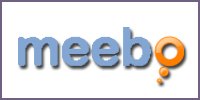Clay Shirky has a great speech about cognitive surplus. A phrase that refers to the free time we have away from our jobs or studies to do stuff. Over the past 30-50 years, what everyone did with this cognitive surplus is watch TV. Sitcoms were the big universal thing everyone did. In fact there is 200 billion hours of cognitive time/surplus in America that is spent watching TV. Over time however, this time spent has been shifting from TV to participatory activities like social networking to video games.

First there’s talking about participation and how it is THE new phenomenon of this generation and how it is hard to calculate. I like this passage:
The physics of participation is much more like the physics of weather than it is like the physics of gravity. We know all the forces that combine to make these kinds of things work: there’s an interesting community over here, there’s an interesting sharing model over there, those people are collaborating on open source software. But despite knowing the inputs, we can’t predict the outputs yet because there’s so much complexity.
It is a big shift from the past when we would sit and watch Price is Right all the time or other mindless crap. I loved those shows but those days are over…
This is something that people in the media world don’t understand. Media in the 20th century was run as a single race–consumption. How much can we produce? How much can you consume? Can we produce more and you’ll consume more? And the answer to that question has generally been yes. But media is actually a triathlon, it ‘s three different events. People like to consume, but they also like to produce, and they like to share.
The big concept in the speech of the idea of cognitive surplus and how that it is dwindling. We are now participating in activities. Whether it is video games, social networks, or other items online – we are doing stuff.

One good story he concludes with is:
I was having dinner with a group of friends about a month ago, and one of them was talking about sitting with his four-year-old daughter watching a DVD. And in the middle of the movie, apropos nothing, she jumps up off the couch and runs around behind the screen. That seems like a cute moment. Maybe she’s going back there to see if Dora is really back there or whatever. But that wasn’t what she was doing. She started rooting around in the cables. And her dad said, “What you doing?” And she stuck her head out from behind the screen and said, “Looking for the mouse.”
Here’s something four-year-olds know: A screen that ships without a mouse ships broken. Here’s something four-year-olds know: Media that’s targeted at you but doesn’t include you may not be worth sitting still for. Those are things that make me believe that this is a one-way change. Because four year olds, the people who are soaking most deeply in the current environment, who won’t have to go through the trauma that I have to go through of trying to unlearn a childhood spent watching Gilligan’s Island, they just assume that media includes consuming, producing and sharing.
I do like the thought of all one-way media becoming more interactive. This is definitely happening. It’s one of those concepts like “The Long Tail” that you can feel happening but it’s not until it’s written in a cohesive manner like this speech that it all comes together.
We’re looking for the mouse. We’re going to look at every place that a reader or a listener or a viewer or a user has been locked out, has been served up passive or a fixed or a canned experience, and ask ourselves, “If we carve out a little bit of the cognitive surplus and deploy it here, could we make a good thing happen?” And I’m betting the answer is yes.



 First, i would buy the best, more user-friendly and one of hte most popular social networks around – Facebook. With facebook, you not only get a great social network, but you also get one of the best photo-sharing applications on the internet. Then i would merge it with AIM, change all AIM-pages to be facebook pages, and place the mini-feed on every users home AOL.com page.
First, i would buy the best, more user-friendly and one of hte most popular social networks around – Facebook. With facebook, you not only get a great social network, but you also get one of the best photo-sharing applications on the internet. Then i would merge it with AIM, change all AIM-pages to be facebook pages, and place the mini-feed on every users home AOL.com page.  Buy Meebo
Buy Meebo who's training for a bunch of marathons has put 3 screens above his treadmill to have 3 different options to read from, a large trackball for a mouse, and a kickass voice recognition system so he can just speak to create emails and documents. This baby is pretty sweet. Considering how much i have to read and write during the day and how often i miss getting my run in – it'd be pretty awesome to just get on a treadputer for 30 minutes of it. Check out the link to it here:
who's training for a bunch of marathons has put 3 screens above his treadmill to have 3 different options to read from, a large trackball for a mouse, and a kickass voice recognition system so he can just speak to create emails and documents. This baby is pretty sweet. Considering how much i have to read and write during the day and how often i miss getting my run in – it'd be pretty awesome to just get on a treadputer for 30 minutes of it. Check out the link to it here: 


